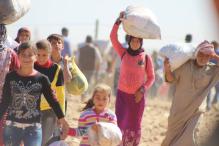Project Overview
United Nations University Centre for Policy Research and the Stimson Center, with the support of the Dutch Ministry of Foreign Affairs, undertook this project to translate the core political commitments of Action for Peacekeeping (A4P) into a set of viable, effective policies and practices. This is the first joint project between UNU-CPR and Stimson Center and draws on reviews of peace operations, interviews with key stakeholders and a comparison across different settings, to describe how mission leaders have translated broad political language into political engagement strategies, Mission Concepts, and approaches across the UN family in-country, with recommendations and resources for decision-making. Drawing on existing methodologies in the social sciences and the development fields, the project has also developed an Assessment Tool with key metrics for peace operations to evaluate their political engagement.
Introduction
The 2018 Action for Peacekeeping Declaration (A4P) commits UN peace operations to pursue political objectives based on integrated strategies and solutions. This emphasis on political solutions echoes the widely-accepted mantra of the High-Level Independent Panel on Peace Operations (HIPPO), which proposed that peace operations undergo a fundamental shift towards the primacy of politics. While there is broad agreement on the need to place political outcomes at the centre of peacekeeping, there is little consensus on what “politics” means in practice. This is in part because political engagement is by nature elusive and often opaque, done behind closed doors or within a constellation of other actors.
Lacking a common understanding, the UN and its partners have tended to accept the notion of political primacy without interrogating what it means in practice. As a result, the ways in which the UN develops and implements politically-led strategies are poorly understood.
The report examines the political practice of peacekeeping, the ways in which missions, the UN Secretariat and the Security Council work to articulate mandated political objectives at a strategic level. Drawing on the internal strategies of peace operations, interviews with senior UN officials involved in peacekeeping, and in-country research by the authors, the report outlines the practices across five major peacekeeping missions today (the United Nations Organization Stabilization Mission in the Democratic Republic of the Congo – MONUSCO; the United Nations Multidimensional Integrated Stabilization Mission in the Central African Republic – MINUSCA; the United Nations Mission in South Sudan – UNMISS; the United Nations Multidimensional Integrated Stabilization Mission in Mali – MINUSMA; and the United Nations-African Union Mission in Darfur – UNAMID).
On this basis, the report offers evidence-based recommendations for improved mandating by the Council, more effective strategy development by UN Headquarters and missions, and greater impact in the implementation of peacekeeping mandates in the field.
Research outputs:
- Full Report
- The Political Practice of Peacekeeping - Cross-cutting report
- Case Study 1: The Political Strategy of UN Peacekeeping in the Democratic Republic of the Congo, by Adam Day
- Case Study 2: Peacekeeping Without a Partner: A Review of UNAMID’s Political Strategy in Darfur, by Adam Day
- Case Study 3: Waiting for Peace: A Review of UNMISS’ Political Strategy in South Sudan, by Dr Charles T. Hunt
- Case Study 4: The Political Strategy of the UN Peacekeeping Mission in the Central African Republic, by Aditi Gorur
- Case Study 5: The Political Strategy of the UN Peacekeeping Mission in Mali, by Aditi Gorur
- Assessment Tool for Measuring the Political Impact of Peacekeeping Operations
This project was made possible by support from the Dutch Ministry of Foreign Affairs. The views expressed are those of the authors.
The Stimson Center promotes international security, shared prosperity & justice through applied research and independent analysis, deep engagement, and policy innovation. For three decades, Stimson has been a leading voice on urgent global issues. Founded in the twilight years of the Cold War, the Stimson Center pioneered practical new steps toward stability and security in an uncertain world. Today, as changes in power and technology usher in a challenging new era, Stimson is at the forefront: engaging new voices, generating innovative ideas and analysis, and building solutions to promote international security, prosperity, and justice.



